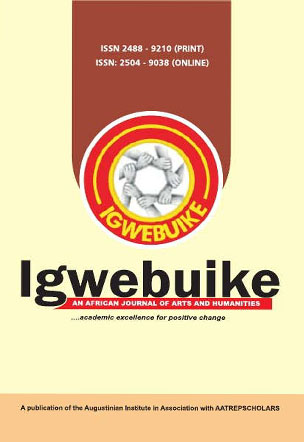
Vol. 9 No. 4, 2023
ABSTRACT
The achievement of the political, economic, and social goals of any political community has been acknowledged as being dependent on leadership and governance (Oni and Nchekwube 1). Leadership is a crucial and significant issue facing Africa and other developing nations worldwide. Finding the right leadership to advance good governance has been a persistent problem in Africa and developing countries in general, with Nigeria being no exception. The purpose of this study was to evaluate the impact of leadership on public sector governance and development in Nigeria. The conceptual framework was built on theories of leadership and governance that had been modified for the Nigerian context. The study involved using the theories of transformational leadership and servant leadership theory as the most appropriate conceptual frameworks. The research demonstrates that Nigeria's history is rife with examples of poor governance and leadership that, in most cases, lacked vision, were primarily preoccupied with corruption and the improper use of public resources, selfless leaders since independence, a lack of accountability, a lack of transparency, and false promises that resulted in insecurity, a decline in the economy, and extreme poverty. According to the study's findings, corruption is a significant problem across the board in Nigerian society. According to the study, Nigeria needs future leaders who are dedicated to combating corruption and ensuring that resources are made available for national development. This measure is vital for building public trust and maintaining good governance.
